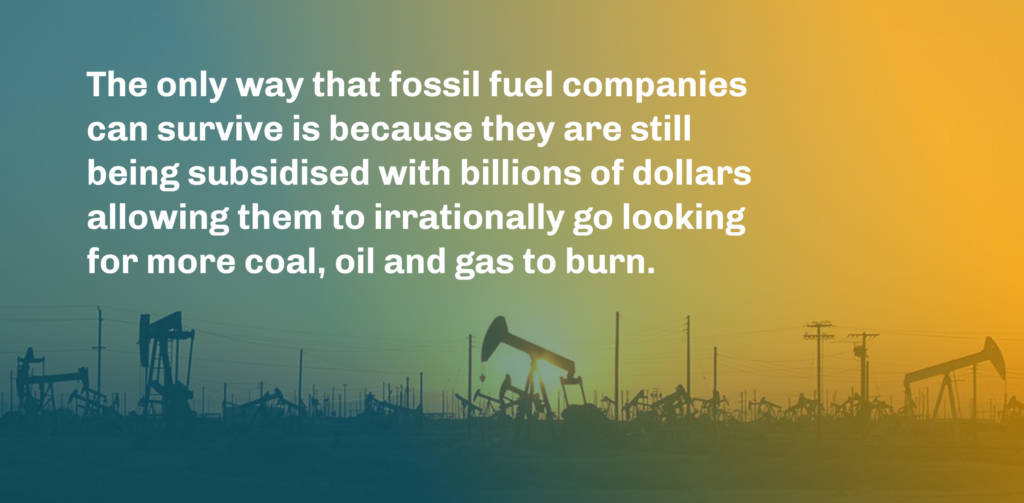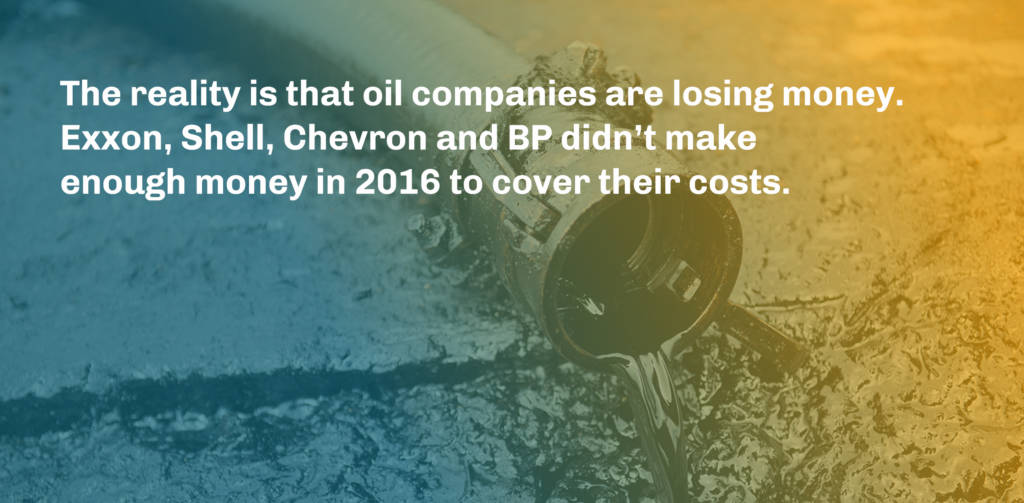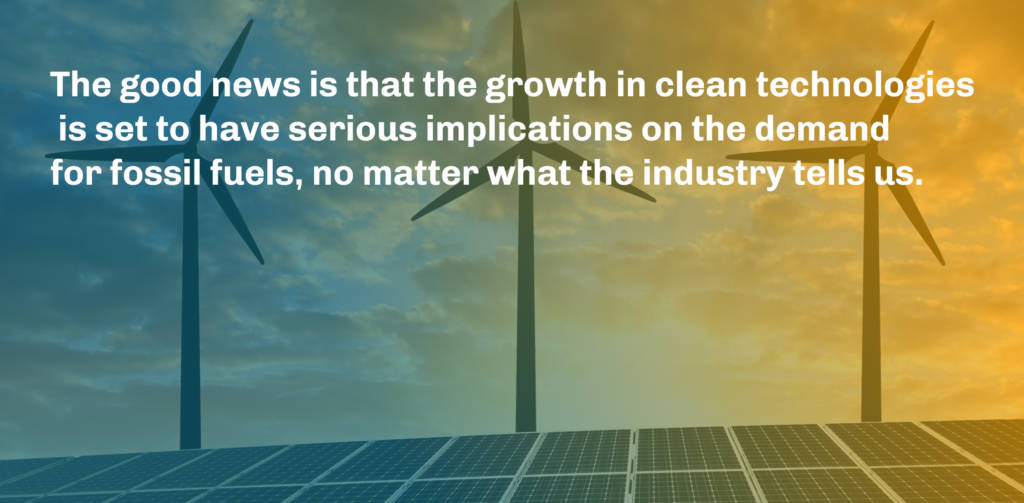The future is not looking good for the fossil fuel industry. The rise of renewable energy and climate policy agreements have created a tipping point marking the end of the dominance of hydrocarbons. Despite the claims that our energy mix can’t function without it, everyday there is news of the closing of coal mines, oil companies moving out of projects, and increased uptake of renewable energy. Dirty energy is no longer profitable for profit nor planet.
Look at the evidence: Shell repeatedly pointed to its forecasts to justify nine years of costly offshore exploratory drilling in the Arctic. But in 2016, the oil giant was forced to scrap those plans, wasting USD 7 billion in shareholder capital. Exxon and Conoco Phillips were recently forced to reduce 4.65 billion barrels of proved oil reserves, wiping USD 183 billion of high-cost tar sands assets from their books. What if this money had gone to renewable energy and energy efficiency development?

The only way that fossil fuel companies can survive is because they are still being subsidised with billions of dollars allowing them to irrationally go looking for more coal, oil and gas to burn. So the assertion that we can’t survive without fossil fuels, is extremely dangerous, as it risks creating a fatalism among policymakers and investors and undermining confidence in alternatives. It also means that billions of dollars are wasted by propping up a dying industry.
The reality is that oil companies are losing money. Exxon, Shell, Chevron and BP didn’t make enough money in 2016 to cover their costs, according to a Wall Street Journal analysis, which basically means the oil giants don’t have the capacity to grow. This, in essence, makes them a bad long-term investment.

The same goes for the coal industry which is also facing serious problems, including Moody’s downgrading of the industry. Elsewhere, China’s coal consumption has fallen for the third year running, and coal plant approvals have fallen by 85 %, as the government announces it will cut 50 million tons of steel capacity and 150 million tons of coal production this year, and put in place a plan for job transition away from the sector. In the UK, use of coal in power generation fell by 52 % in 2016, resulting in a near 6% drop in carbon pollution.
Unbelievably despite this, many people are still under the misapprehension that we can’t function as a society or that our economies can’t run without dirty energy. That somehow the existing clean technologies are insufficient. This is a narrative perpetuated by the carbon-based energy companies that realise that they are now facing an existential crisis and deception is the only way for them to survive.
This is why our governments, universities, religious organizations, cultural institutions, individuals, and more, must divest and cut ties with this rogue industry in order to curb the worst future impacts of climate change, this is the only sound and moral action.
Human life and the prosperity of the planet is incompatible with long-term profit growth of fossil fuels. If we carry on burning all the carbon that is currently in operating fields and mines, we will far surpass the Paris Climate Agreement aspiration to limit warming to 1.5C. According to Carbon Brief – we only have four years left of burning fossil fuels at the current rate before we go past the ability to curtail warming at this level. And yet, fossil fuel companies are continuing to waste millions every single day looking for more to dig.
The good news is that the growth in clean technologies is set to have serious implications on the demand for fossil fuels, no matter what the industry tells us.Recently the IEA estimated that, a total of US$1 trillion spent on oil assets and US$300bn in natural gas assets could be wasted. These so called ‘stranded assets’ and financial risks from climate change, make investments in dirty energy a dangerous choice that is not worth taking environmentally nor financially.

The growth of electric cars is also contributing to the end of the oil era. Cars using modern clean technology could make up a third of the world’s road transport market by 2035 and solar PV alone could supply nearly a quarter of global power generation by 2040. A boom in electric vehicle and solar energy deployment driven by falling costs will halt growth in oil and coal demand from 2020.
With all of this evidence, public tolerance for fossil fuel companies is running out. Withdrawing financial support to the fossil fuel industry is the only sound choice. Divestment serves to enact an immediate and transformational form of climate leadership which the world urgently needs. Continuing to invest in fossil fuels means funding climate impacts that we can no longer afford.
The coming Global Divestment Mobilisation in May provides a tangible way for individuals and institutions to partake in building the just world everyone deserves. Our goal is to advance what the fossil fuel divestment movement has already achieved as a global US$5.5 trillion movement, expanding divestment into every corner of the world and helping expedite the equitable shift of economic and political control away from extractive corporations. It’s time for all our institutions to do what is morally right and divest from disaster.